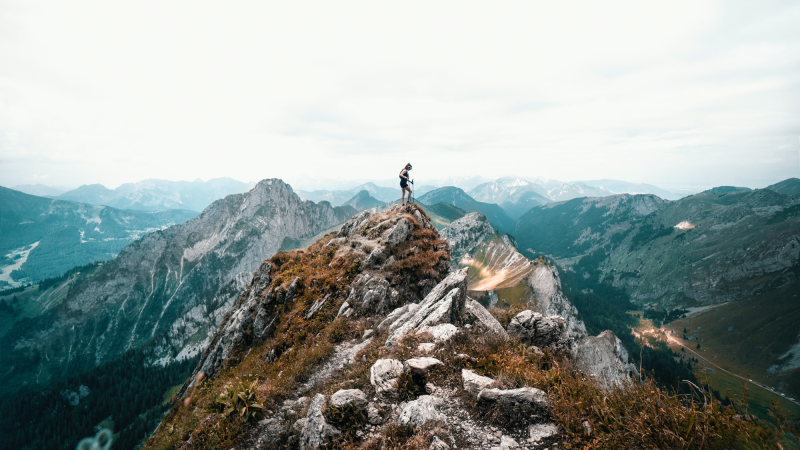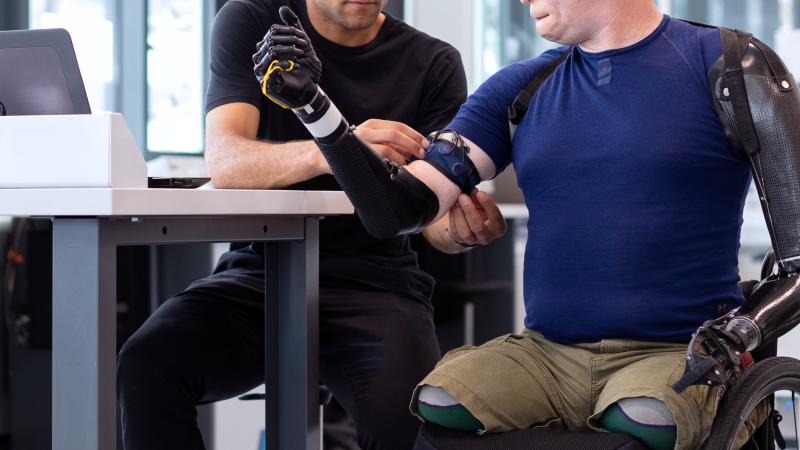Sometimes all you really want to take to bed is a good book. In this hour of To the Best of Our Knowledge, meet some passionate readers. We’ll also try to find out if big time critics really hate books.Read more
Episode Archives
We’re all a little bit wild inside, but how often do we let it out? If you've been spending too much time indoors in front of a screen, maybe it's time for a dose of the real thing. This week,stories of people who found strength, wonder and joy by heading into the wild.Read more
For the first time in American history, young women are choosing independence over marriage. Single women today outnumber married women and have more political power than ever before. It's what Susan B. Anthony, Margaret Sanger and other feminist icons predicted. This hour, how...Read more
Next time you catch an old episode of the Flying Nun, you may want to pay attention. Because today’s convents are closing. The average nun is seventy years old, and even devout sisters often have to bite their tongues when they talk about the pope. In this hour of To the Best of Our Knowledge...Read more
Forty years ago, the U.S. ended its war in Vietnam, but we're still fighting over its legacy - in foreign policy and military strategy, and also in books and movies. But there's one question Americans rarely ask: what does the war mean to the Vietnamese themselves? We'll hear several...Read more
It’s one of the great stories in the history of books. James Murray was a poor kid from Scotland who dropped out of school at age 14. Somehow, he taught himself the history of words in various languages, and went on to create the world’s greatest dictionary. In this hour of To the Best of Our...Read more
It turns out that television may not be quite the "boob tube" and "the idiot box" that we thought it was. It seems that watching TV can actually make you smarter... by posing new cognitive challenges for your brain to solve. In this hour of To the Best of Our Knowledge, we'll explore the...Read more
What goes on inside the mind of a painter, or a musician, or a poet? What sparks creativity? In this hour of To the Best of Our Knowledge, new neuroscience takes us inside the creative mind. We’ll talk about brain imaging studies of jazz musicians, and cosmologist Brian Swimme explores the...Read more
David Graeber was an iconoclastic anthropologist and influential radical thinker, one who popularized the rallying cry "We are the 99%." He died on Sept. 2 in Venice, Italy at age 59. Read more
For years poet and novelist Alice Walker told her friends she’d probably never write again. But the events of September 11 changed all that. And the poetry flowed. In this hour of To the Best of Our Knowledge, Alice Walker on the role of the poet in a time of war. Also, Iraqi poetry today. ...Read more
Here’s the truth: the wild romance will probably end. Wedding vows, intimacy, heartache… they can have a long shelf-life. But those butterflies in your stomach? Wild libidinal longings? They tend to quiet over time.
So what happens after the romance ends? From passionate marriage, to ...Read more
The Capitol Hilton. The Eve of then-President Clinton’s Alfalfa Club Speech, one of four humorous speeches of the so-called Washington “silly season.” In this hour of To the Best of Our Knowledge, the story of a White House joke-writer, a contentious egg-timer, and the night Bill Clinton...Read more
As America endures the worst economic crisis since the Great Depression, the hardships our grandparents and great grandparents lived through are suddenly relevant again. In this hour of To the Best of Our Knowledge, stories from the Great Depression – advice from the generation that survived...Read more
Cameron Sinclair has something to say to architects out there: design like you give a damn. The founder of Architects for Humanity says the houses and office buildings we build today will literally shape the world our children inherit. So give a damn. In this hour of To the Best of Our...Read more
A fashion model with prosthetic legs… a musician who can’t hear… a writer who can’t see. Instead of disabled, differently-abled, handicapped – why not better-abled?Read more
Eighty per cent of Americans say they believe in heaven. But when they're asked to describe it, many are at a loss for words. Do they think that there's another universe in the sky or do they believe that heaven is something more abstract and metaphorical? We'll explore our enduring fascination...Read more
These days it seems we just can’t get enough of it. Over the past few years, luxury spending in the United States has been growing four times faster than overall spending. We’re spending more money on more products and services that we don’t really need – like Evian bottled water and Prada...Read more
James Tiptree Jr. wrote some of the most critically-acclaimed science fiction stories in the 1960's and 1970's....classics like "Houston, Houston, Do You Read?" and "The Women Men Don't See." But James Tiptree was actually the pseudonym of a 61-year-old woman, Alice B. Sheldon. In this hour of...Read more
Remember those great cars from the Fifties? The Redscare Phantom Witchhunter and the Bongo Beatnik Ferlinghetti TurboHipster? If you don’t recall them rolling off Detroit’s assembly lines, there’s a perfectly good reason. They never existed, except in the imagination of writer and illustrator...Read more
Think you know your history? Then, of course, you remember Martin Luther King's famous "If I Had A Hammer" speech. And you know that Joan of Arc was Noah's wife...and she was at rest on Mount Arafat. And you don't need me to remind you that Marie Curie won the Noel Prize for inventing the...Read more
Are you an experimental innovator who works by trial and error and is most creative later in life, like Cezanne? Or are you a conceptual young genius like Picasso? We'll explore a theory that those are the two life cycles of artistic creativity.Read more
Everybody gets excited about whatever's new, but what about what's really, really old? In this hour of To the Best of Our Knowledge we commemorate geologic time. We'll meet the scientists who found the oldest object on Earth - a three point four billion year old zircon! And the Jazz...Read more
Two people, a house, a pitchfork, and a barn. It's hard to find a better-known American painting than Grant Wood's masterpiece "American Gothic." But just who are those grim people, and why do they have such a hold on the American psyche? Here's the history of an American classic. Also, a...Read more






